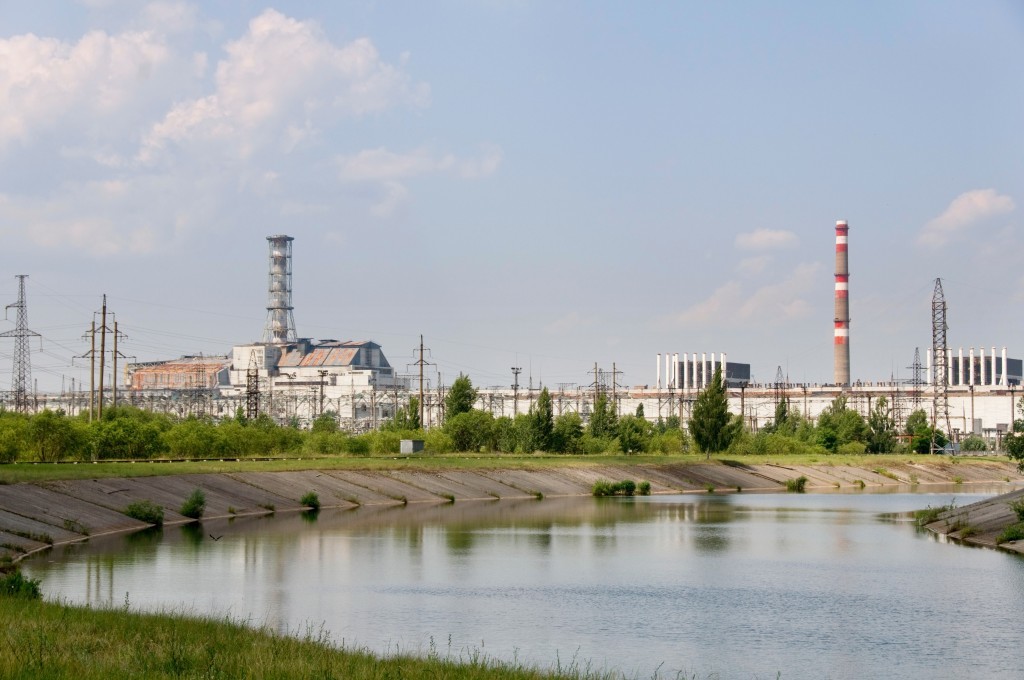
Belarusian milk has been found to contain a radioactive isotope at levels 10 times above the nation’s food safety limits.
The samples came from farmer Nikolau Chubenok’s cows close to the country’s Chernobyl exclusion zone, just down the road from signs warning “Stop! Radiation”.
The finding on the eve of the 30th anniversary of the world’s worst nuclear accident indicates how fallout from the April 26 1986 explosion at the plant in neighbouring Ukraine continues to affect life in Belarus.
However, many people living along the edge of the Polesie Radioecological Reserve, a 2,200-square-kilometre (850-square-mile) ghost landscape of 470 evacuated villages and towns, show little regard for the potentially cancer-causing isotopes still to be found in the soil.
Farmers suggest the lack of mutations and other glaring health problems mean Chernobyl’s troubles can be consigned to history.
“There is no danger. How can you be afraid of radiation?” said Mr Chubenok, who since 2014 has produced milk from his farm just 45 kilometres (28 miles) north of the Chernobyl site.
Mr Chubenok said he hopes to double his herd size and start producing farmhouse cheese on site.
His milk is part of dairy factory Milkavita’s supply chain for making Polesskiye brand cheese, about 90% of which is sold in Russia, the rest domestically.
Milkavita called the findings of the Associated Press-commissioned lab finding “impossible”.
Factory officials insisted their own tests show their milk supply contains traces of radioactive isotopes well below safety limits.
Since rising to power in 1994, Belarusian president Alexander Lukashenko, the former director of a state-owned farm, has stopped resettlement programmes for people living near the mandatory exclusion zone.
Instead, he has developed a long-term plan to raze empty villages and reclaim the land for crops and livestock.
The Chernobyl explosion meant 138,000 Belarusians closest to the plant had to be resettled, while 200,000 others living nearby left voluntarily.
Dr Yuri Bandazhevsky, one of the most prominent medical critics of the government’s approach to safeguarding the public from Chernobyl fallout, was removed as director of a Belarusian research institute and imprisoned in 2001 on corruption charges that international rights groups branded politically motivated.
Since his 2005 parole he has resumed his research into Chernobyl-related cancers with EU sponsorship.
Dr Bandazhevsky, now based in Ukraine, said he has no doubt that Belarus is failing to protect citizens from carcinogens in the food supply.
“We have a disaster,” he told the AP in the Ukrainian capital Kiev.
“In Belarus, there is no protection of the population from radiation exposure. On the contrary, the government is trying to persuade people not to pay attention to radiation, and food is grown in contaminated areas and sent to all points in the country.”
The state-run Minsk Centre of Hygiene and Epidemiology said it found strontium-90, a radioactive isotope linked to cancers and cardiovascular disease, in the milk sample in quantities 10 times higher than Belarusian food safety regulations allow.
Health officials say the danger level posed by low levels of radioactive isotopes depends greatly on length of exposure and individual physiology.
Notably, the regional free-trade bloc that includes Belarus and Russia permits higher levels of strontium-90 in goods of up to 25 becquerels per kilogram, still lower than that detected in the test.
The deputy director , , said Belarus permits food producers to conduct their own food safety monitoring and lacks the lab equipment necessary to identify the presence of americium, which is estimated to be present in about 2% of Belarus’ top soil and is expected to remain a health risk for another 270 years.
“One-time ingestion of contaminated food is not very dangerous,” said Natalya Timokhina of Belarus’ Institute of Radiobiology Timokhina.
“What’s dangerous is the accumulation of radionuclides in the body.”
Ausrele Kesminiene, a doctor in the cancer research unit of the World Health Organisation (WHO), said the consumption of radioactive food is linked chiefly to the development of cancer in the thyroid, a gland in the neck that produces body-regulating hormones.